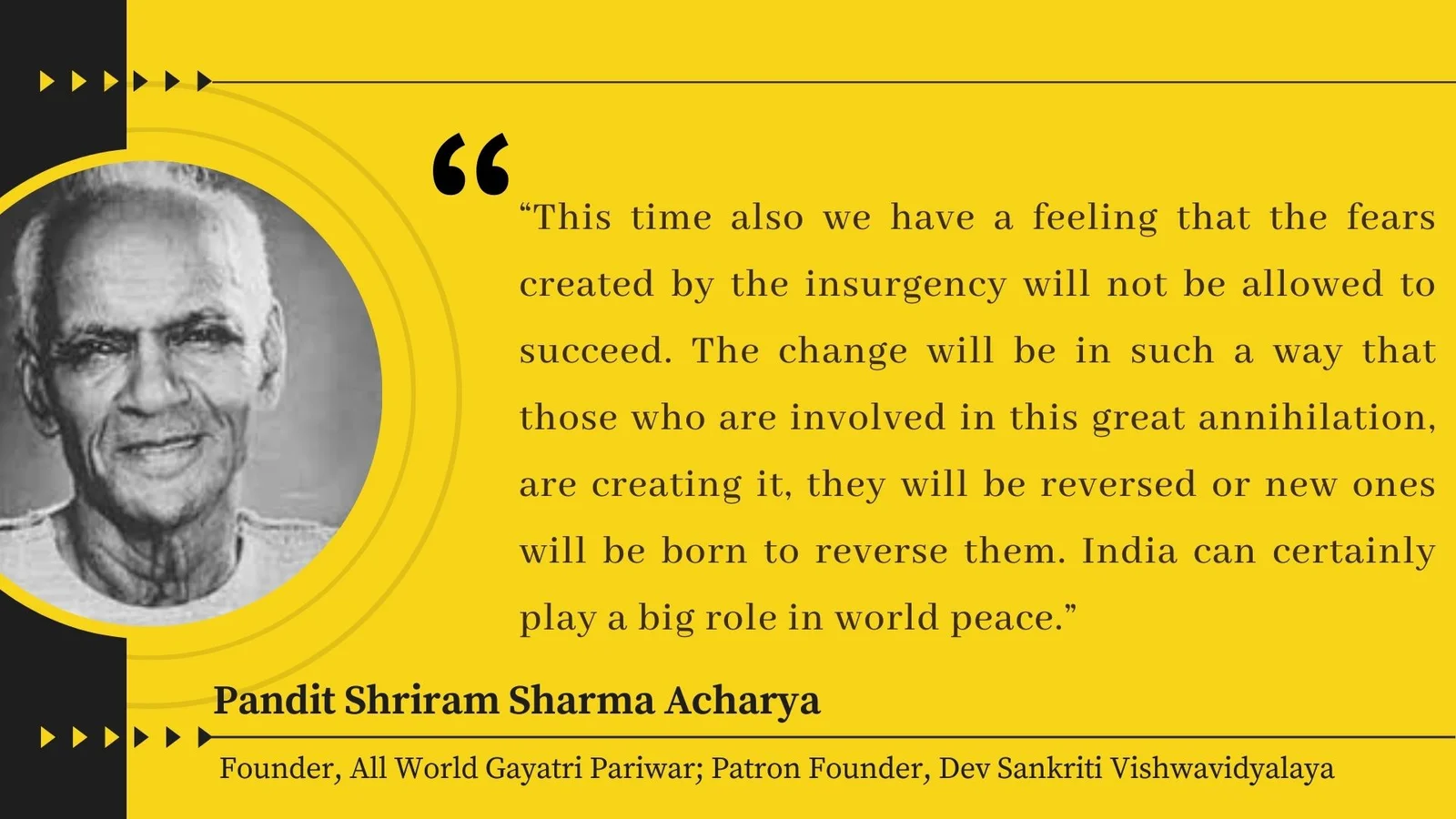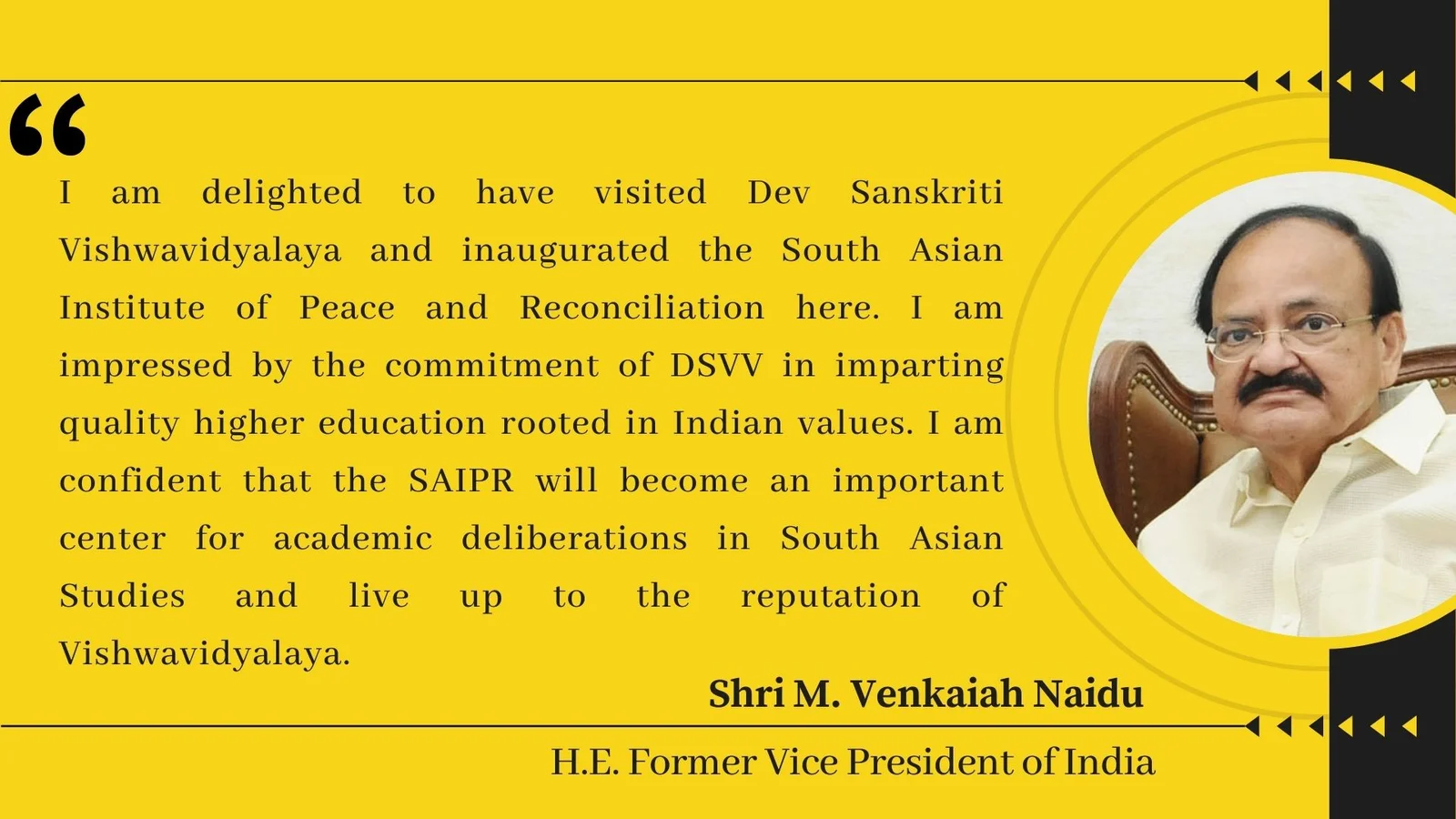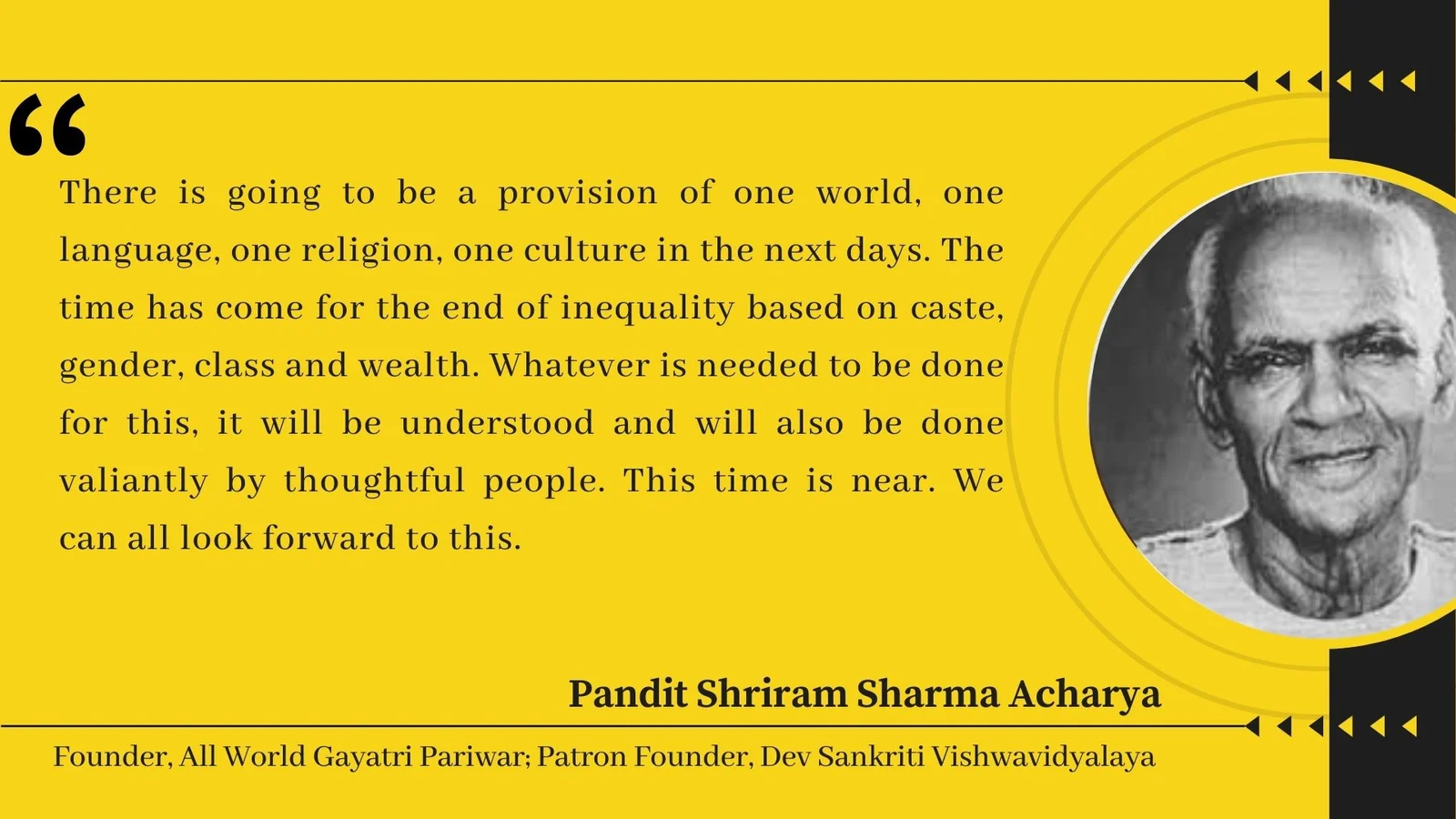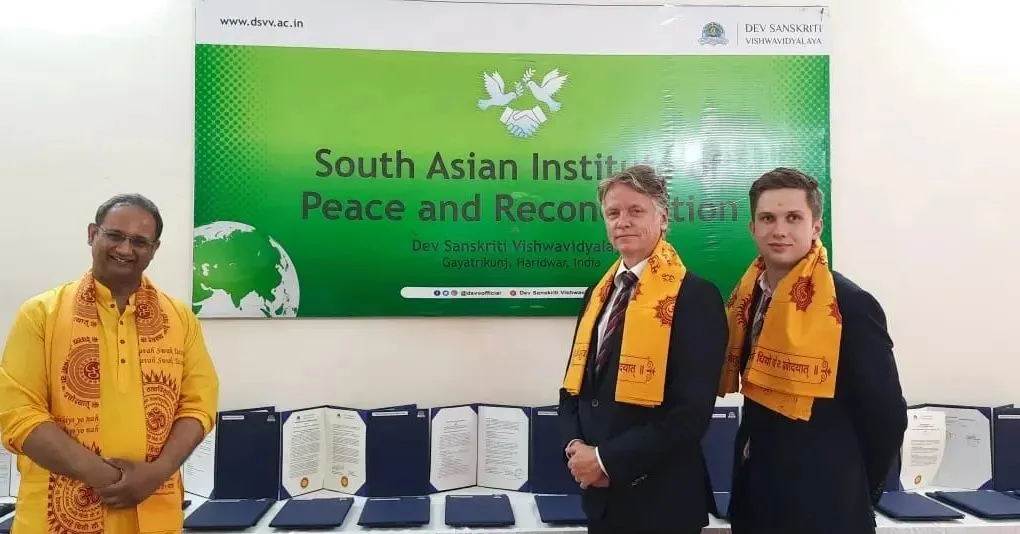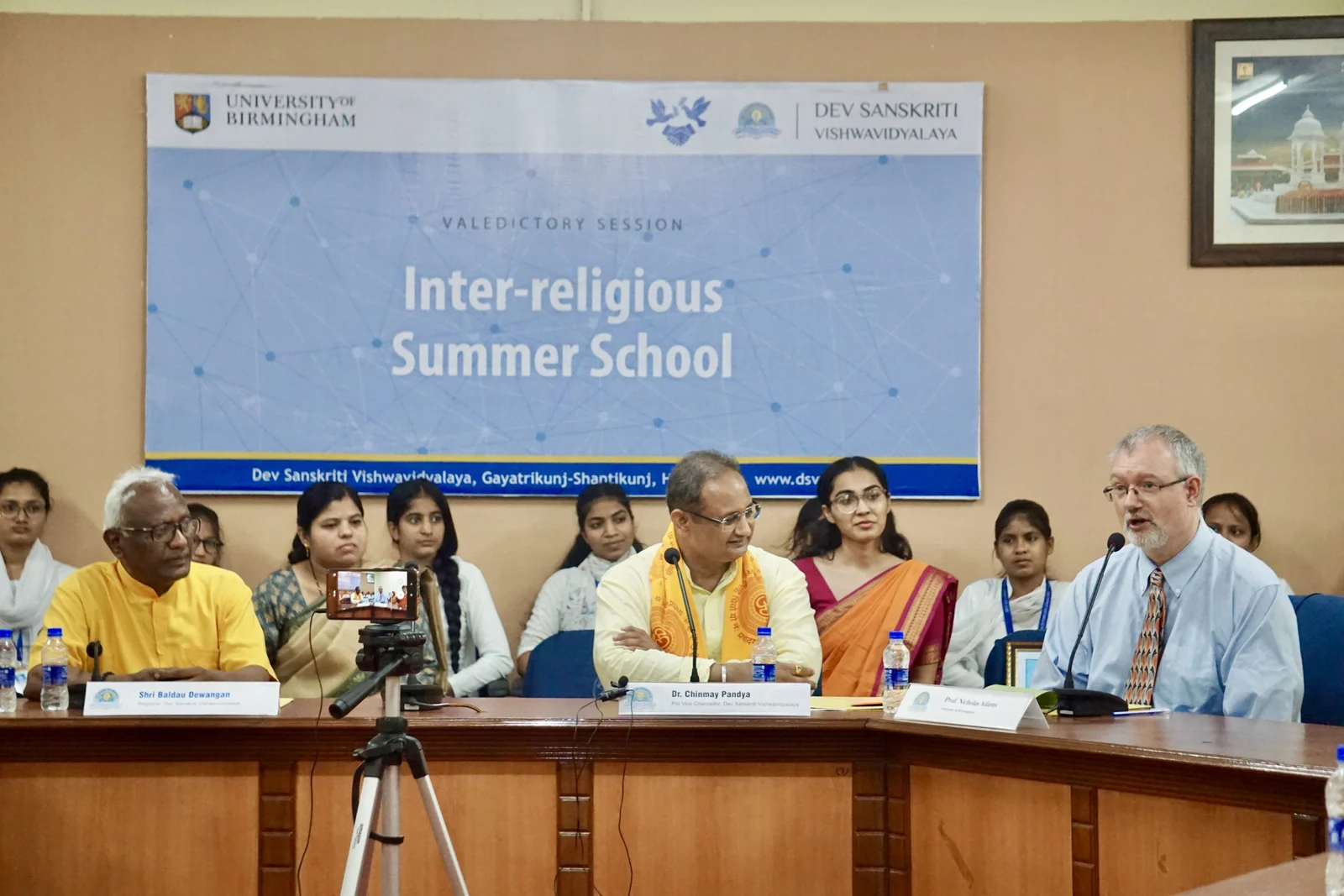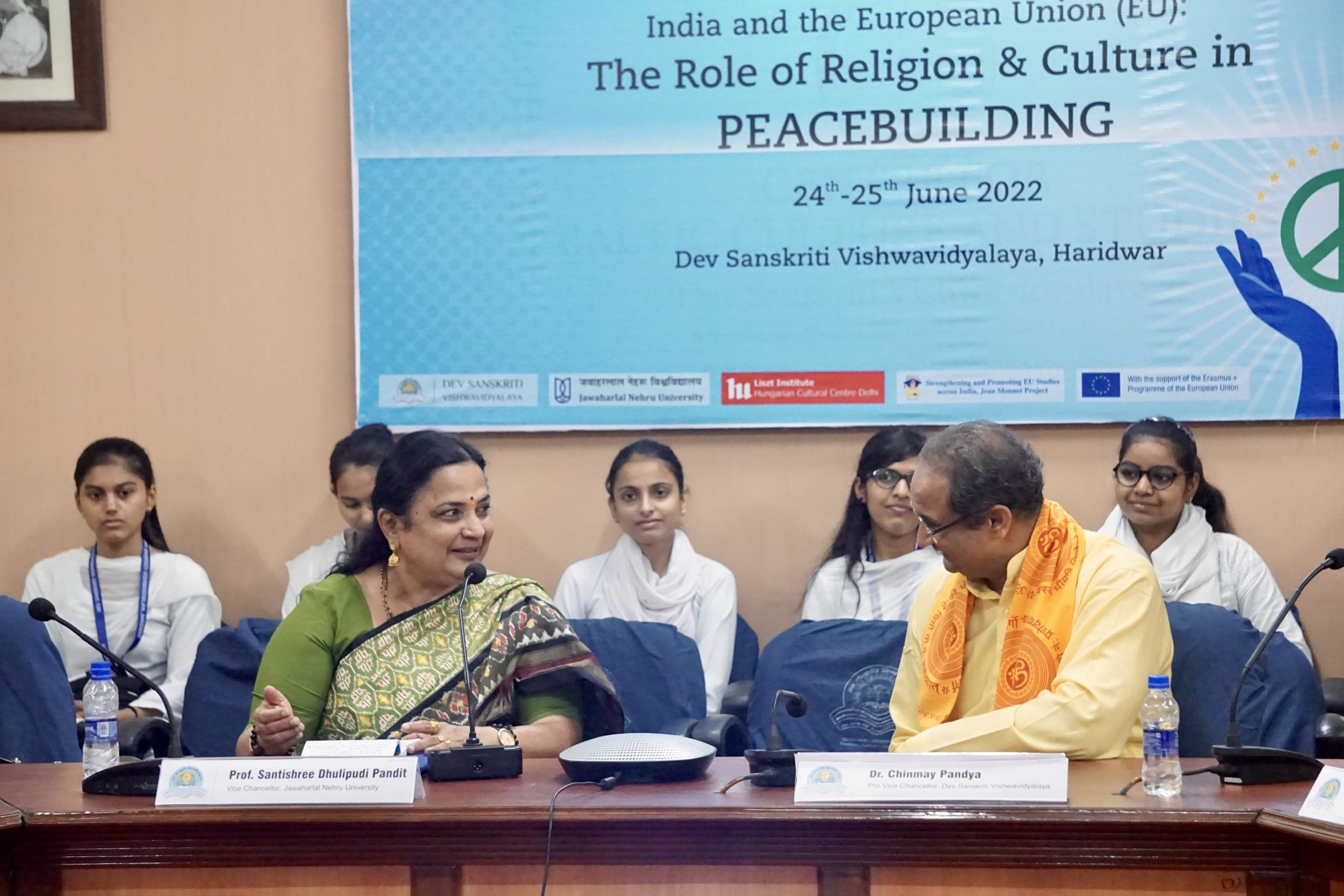South Asian Institute for Peace and Reconciliation (SAIPR)
Inception
In 2016, Dev Sanskriti Vishwavidyalaya (DSVV) and the University of Winchester (UoW) entered into a formal Memorandum of Understanding, with the intention of jointly developing research and education in a number of different areas, including peace studies. The Institute was inaugurated by H.E. the Vice President of India Shri M. Venkaiah Naidu Ji on March 19th, 2022. A Peace Institute which focuses on the role of religion in conflict and peace building located in South Asia (SA) is a unique and much needed addition to global Peace Studies scholarship and practice. This does not necessarily mean that the Institute will have an exclusive geographical focus on South Asia, but that it values Asian knowledge, wisdom and values in its study of peace. SAIPR would also have a strong research focus on reconciliation, as this is an extremely important and relatively under-researched area which is strongly linked to the religious/cultural dimensions of peace building.
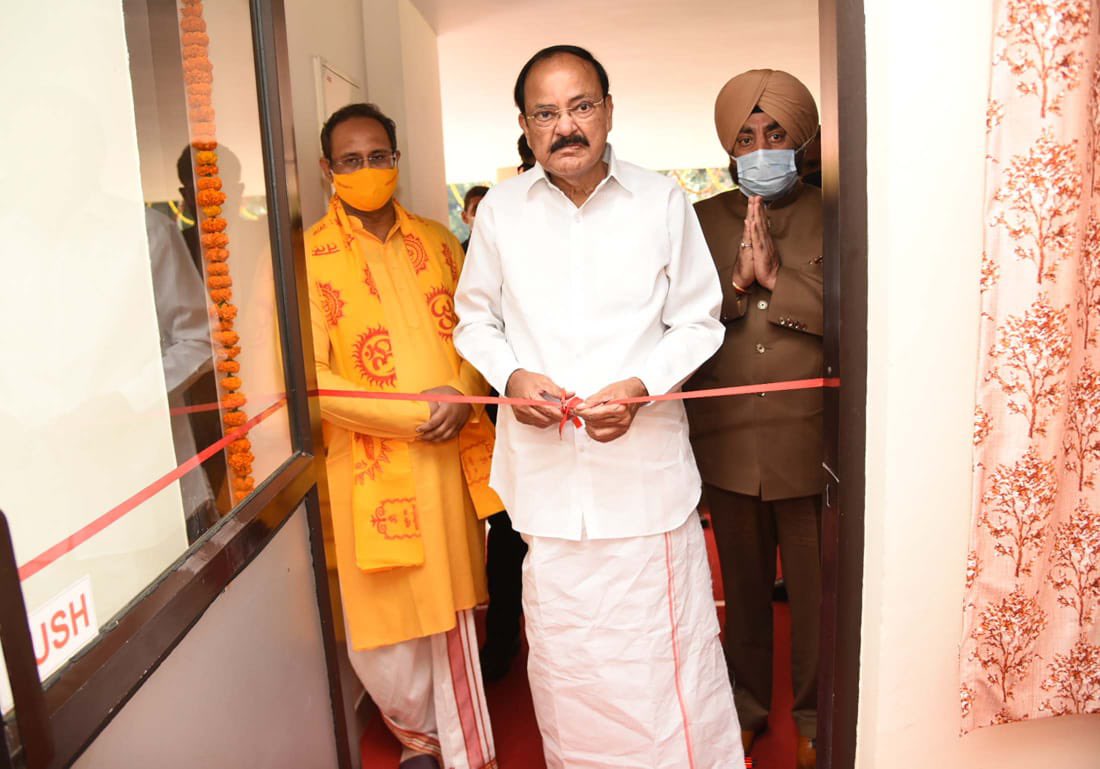
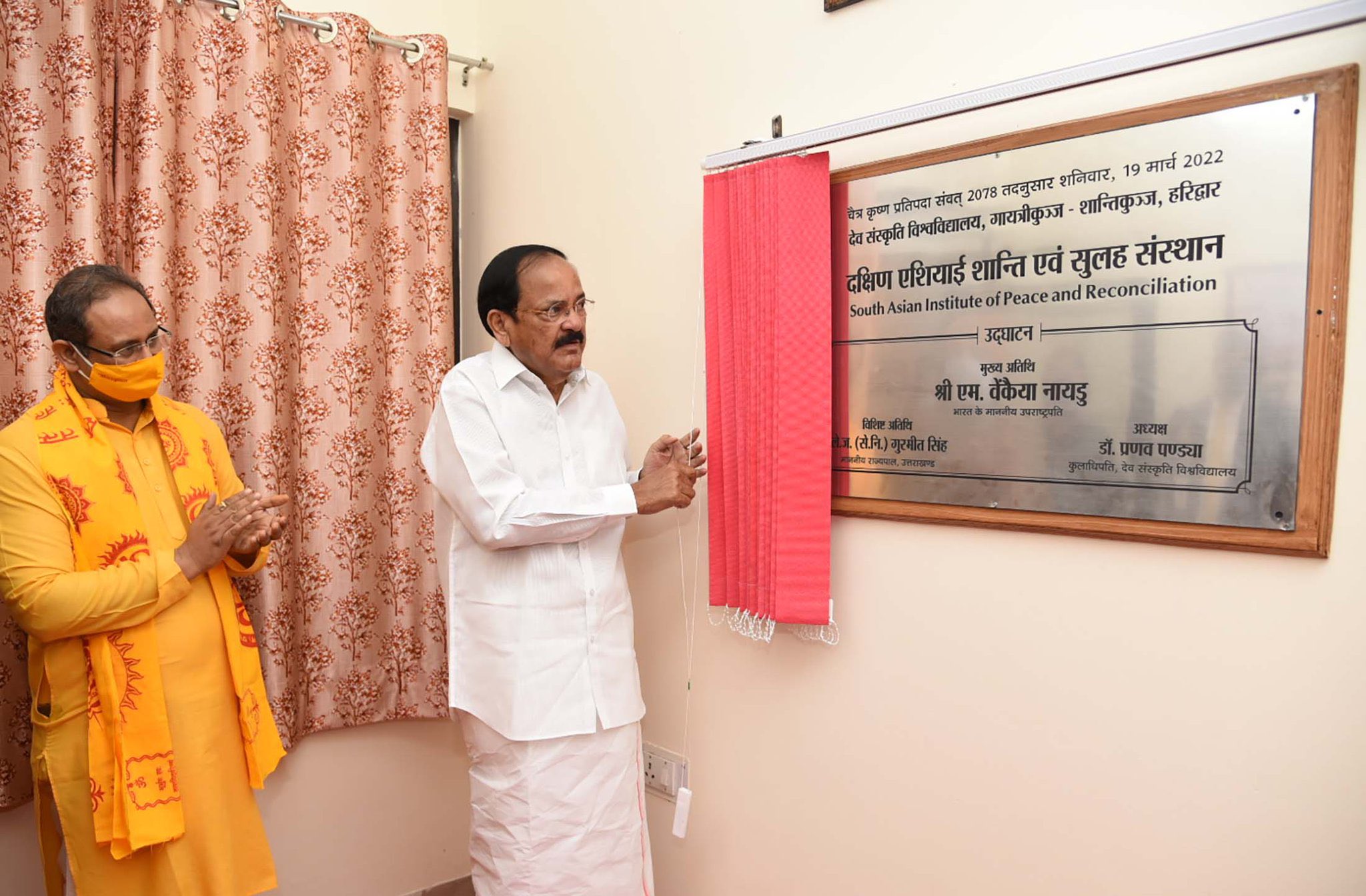
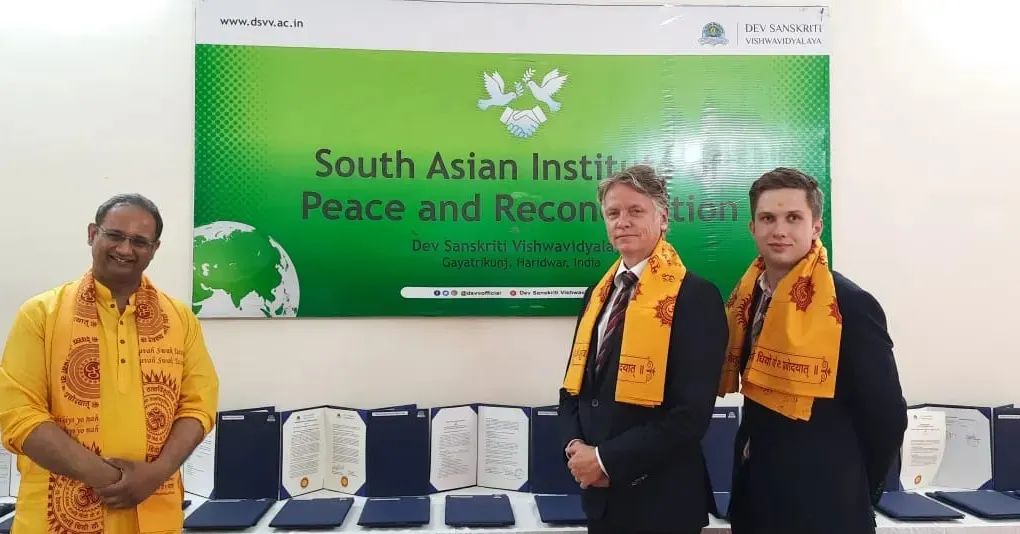
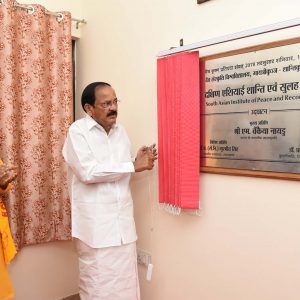
Hon. Vice President of India inaugurates “South Asian Institute of Peace and Reconciliation” in DSVV On the occasion of Shantikunj Golden Jubilee Year, Vice President of India H.E. M. Venkaiah Naidu and Hon'ble Governor of Uttarakhand Lt. General (Retd.) Gurmeet Singh visited Dev Sanskriti Vishwavidyalaya. On this special occasion, Hon'ble Vice-President inaugurated the South Asian Institute of Peace and Reconciliation.
Vision
The Institute has been set up on the lines of collaboration of Dev Sanskriti Vishwavidyalaya with the University of Winchester, U.K. which aims for developing research in religion, peace building and reconciliation. This institute is a much-needed addition to global Peace Studies, scholarship and practice. It will provide practical training on religious peacebuilding, conflict analysis, and interfaith dialogue. In a ceremony held after the inauguration, Mr. Naidu said, “It is my privilege to inaugurate the ‘South Asian Institute of Peace and Reconciliation’ dedicated to the service of humanity.” He also praised the university for its impactful worldwide efforts in the fields of Yoga, Yagya and scientific spirituality.
Objectives
The Centre would engage in:
- World class research in religion, peace building and reconciliation.
- Research informed Post Graduate teaching and supervision initially, leading to Undergraduate provision as the Centre and resources develop.
- Practical training on religious peace building, conflict analysis, and interfaith dialogue.
- Policy briefings and a consultancy dimension.
ACTIVITIES OF SAIPR
The activities proposed under the South Asian Institute of Peace and Reconciliation are as follows:

 (1).jpeg)
